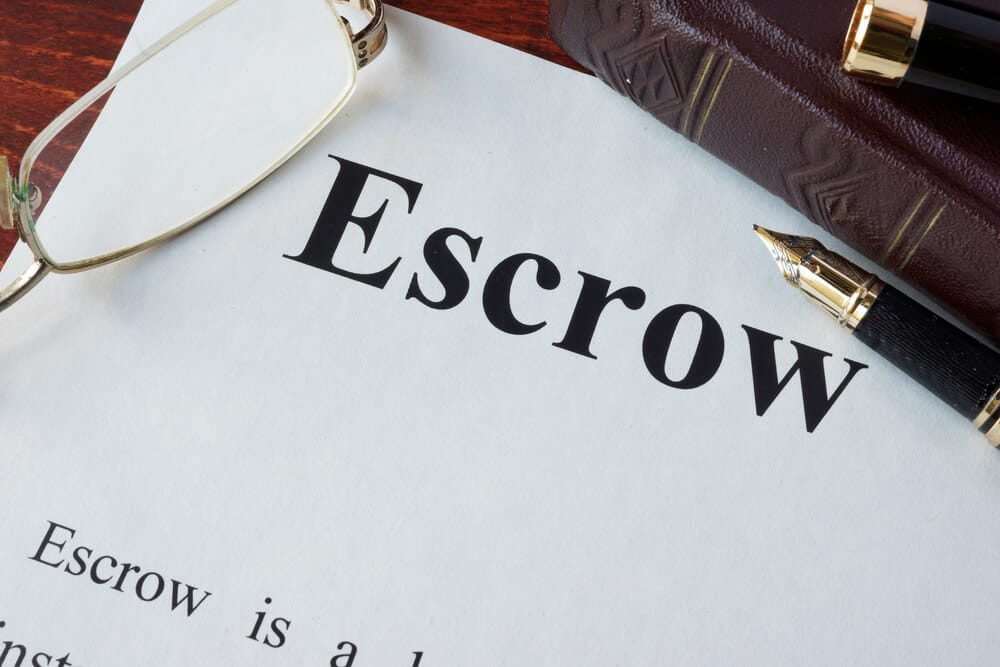Without having been involved either buying or selling a home you probably don’t know what an escrow officer does. However, that person is one of the more important pieces in the transaction puzzle. There are plenty of people involved during the course of a loan approval, some perhaps more important than others but all needed nonetheless. Of course your loan officer and loan processor are important, they’re the ones who originate, counsel and collect the necessary documentation needed to get your loan application approved.
The person at the mortgage company who reviews and approves your loan application is the underwriter. There is also an appraisal needed, a credit report, title insurance, and hazard insurance policies will be ordered, etc. And the escrow agent is the one who puts it all together.

The Escrow Process
When a sales contract is signed by both parties and a settlement date selected, the agent representing the seller will open escrow at the escrow office of the agent’s choice. The buyers in such a transaction have little to no control over who the escrow officer will be during a purchase and simply follow the instructions listed on the sales contract. Conversely, during a refinance of an existing mortgage, it is the lender who selects the escrow agent used to oversee the closing.
The escrow officer does not favor one side or the other regardless of who selected the escrow officer but instead acts as an independent third party making sure everyone does what they’re supposed to do and the settlement performed based upon lender requirements and California law. An escrow officer can’t give you any advice during the closing process and if you have a question about a particular fee you’ll have to work with your lender and loan officer, not the escrow officer. For example, you’ll never hear, “I think you should cancel this whole transaction because…” from the escrow officer. The escrow officer is strictly limited to follow instructions.
When the underwriter makes the determination the loan application has met all the requirements of the selected loan program and is properly documented, loan papers will be ordered and electronically delivered to the escrow agent’s office. Upon the initial delivery of the loan to the escrow officer, the escrow officer will also read a list of “Lender’s Instructions.” These instructions are line items the escrow office must make sure have been completed, signed, initialed and returned back to the lender once everything has been completed.
Another escrow officer duty is to prepare a closing statement which is delivered to the sellers and buyers. This statement will list all fees associated with the transaction, who will be responsible for which charges and distribute collected funds to the third parties listed on the settlement statement. In addition, the escrow officer is the agent who will hold the buyer’s earnest money deposit and apply those funds to the final cash to close amount listed.

Escrow Offer Basic Responsibilities
In short, the escrow officer is responsible making sure both parties have performed what has been laid out in the sales contract while simultaneously following the lender’s instructions to the letter. For example, say that a sales contract requires the sellers to repair a fence. The escrow officer will need verification the fence has been repaired. The mortgage company will also need verification of the fence repair to be included in the loan file.
If the sales contract requires the sellers to pay for half the buyer’s closing costs, the escrow officer is required to make sure that will happen at the settlement table. The buyers can also have a clause that states they can cancel the transaction if a property inspection indicates physical issues with the home. If we go back to the fence scenario, if the buyers go to the settlement table and the fence has yet to be repaired and the sellers promise they’ll fix it after closing, the buyers can cancel the transaction right then and there because the seller didn’t meet the requirements spelled out in the sales contract.
If you can imagine someone spinning and balancing lots of plates you can imagine the many responsibilities of an escrow officer. There is a lot going on after your sales contract is signed but on your end it gets a bit quiet. Yet plenty is happening.
The escrow officer receives third party documentation needed to close the loan based upon the instructions in the file. Once the escrow officer has determined all parties have fulfilled their responsibilities and all documents have been signed and initialed, the entire loan package is then electronically returned back to the lender. So far, the mortgage funds have not been released by the lender, even though the escrow officer has completed the settlement. Instead, the mortgage company reviews the file and makes sure the escrow officer has followed all the instructions properly. If not, the escrow officer must correct or update the closing.
For example, let’s say the lender asks the escrow officer to collect one more recent pay check stub from one of the borrowers yet in the file the pay check stub cannot be located. If in fact the pay check stub was not provided the lender has the option to go ahead and fund the loan and release the mortgage funds with the intent of collecting the pay check stub independent of the escrow officer or instruct the escrow officer to collect the pay check stub and then forward.
Once the lender determines the loan package has been completed and all the required documents are attached to the loan file the lender then contacts the escrow officer and provides a “funding number” which in essence is a code the escrow agent needs to release the mortgage funds. The mortgage process is not complete until the funding number has been provided to the escrow officer and the mortgage funds delivered.


